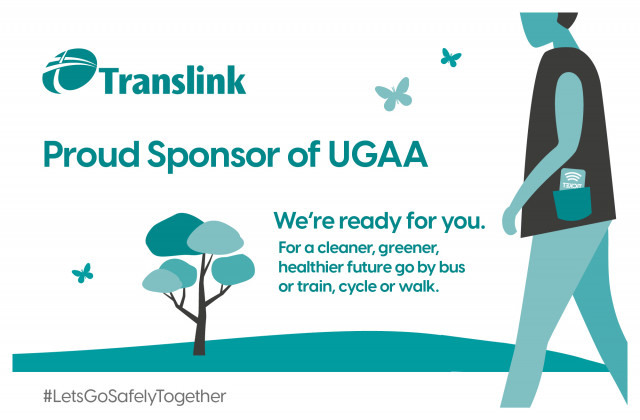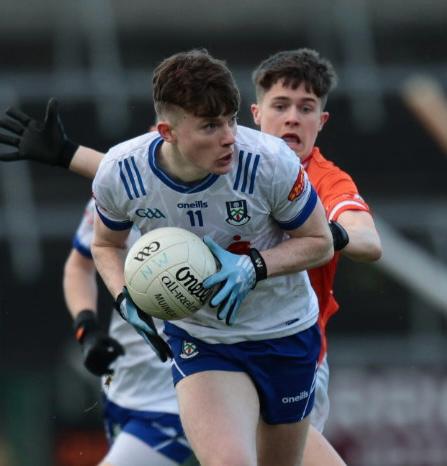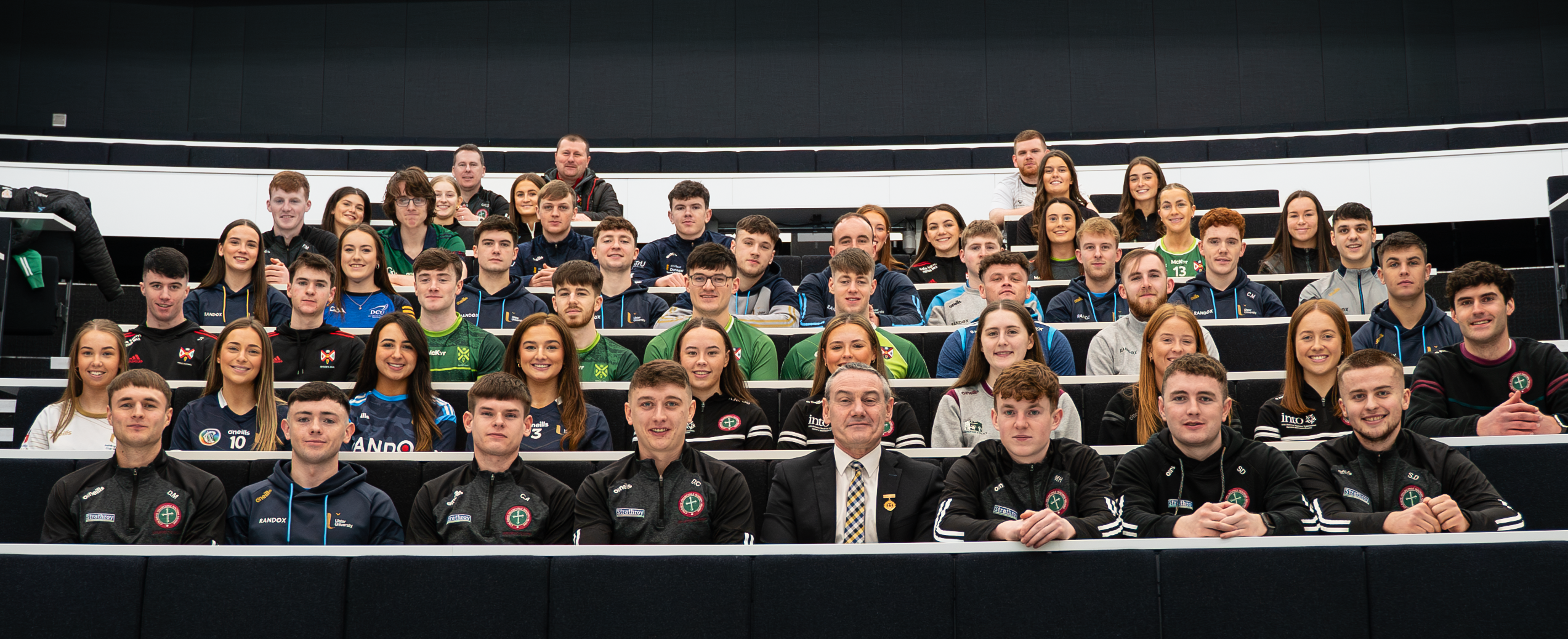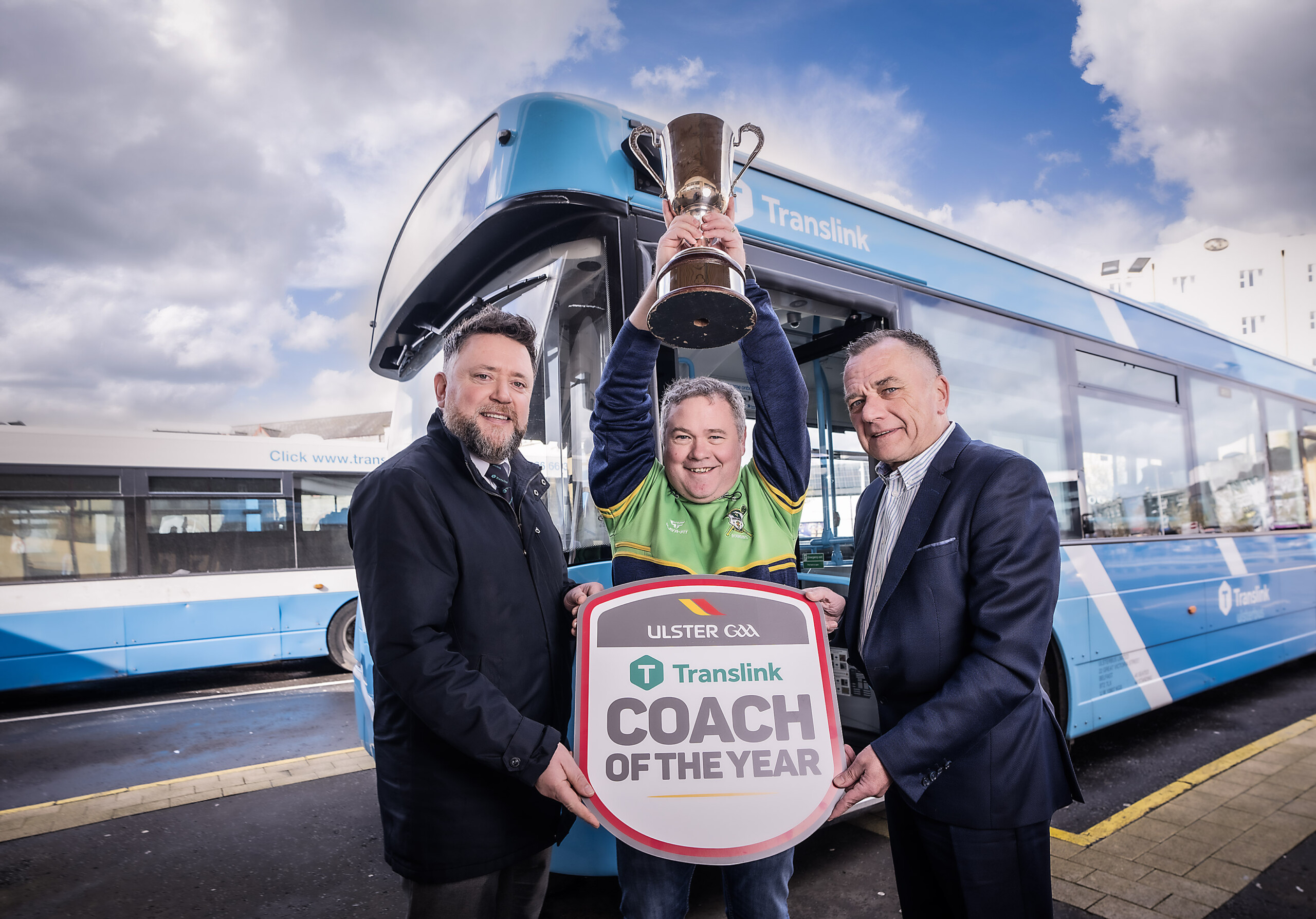St Mary’s complete unique Hogan/O’Keefe double
THE controversy surrounding the semi-final of the 1971 MacRory Cup involving two Belfast schools somewhat overshadowed the superb achievement of St Mary’s CBS who went on to not only win their first ever MacRory title but also collect an All-Ireland football and hurling double in late April, early May.
Indeed the eclipse of both the Hogan and O’Keefe Cups by the same school in the same season is unique. There were 13 players members of both teams with nine of them playing in both deciders.
Current Pro Chancellor and Chair of the Senate at Queen’s University Stephen Prenter helps Séamas McAleenan wind the clock back 49 years.
But before we start, lets clear up the controversy.
St Malachy’s Belfast were the reigning MacRory Cup champions, robbed of the Hogan title by an injury-time goal from Cork’s Coláiste Chríost Rí in Croke Park. They had most of that 1970 team back in harness for the 1971 campaign with a certain Martin O’Neill as a talismanic captain.
The problem was Martin. The future soccer international and manager was already starring with Distillery in the Irish League. The GAA ban on “foreign games” was still in place, although the schools and the governing bodies of schools’ GAA competitions turned a blind eye to it.
When St Malachy’s qualified to play St Mary’s CBS in the semi-final, the Antrim County Board stepped in to refuse to allow the game to be played in Casement Park, or indeed any GAA ground in the county.
The semi-final was delayed for several weeks as a venue was sought. Eventually it was played 70 miles up the road in the grounds of Omagh CBS on an unenclosed school pitch watched by a handful of spectators.
By the time St Mary’s won the Hogan Cup later that spring the “ban” had been abolished by GAA Congress held in Belfast.
Derry’s 1958 midfielder Phil Stuart was a teacher in Holy Child Primary school in west Belfast in the mid 1960s. He took the school GAA team to their first ever Belfast schools’ Raffo Cup title in 1964.
Phil later joined the staff of St Malachy’s College and within three seasons St Malachy’s had captured two Rannafast Cups and a MacRory.
He was in charge of the St Malachy’s team in Omagh that day against St Mary’s CBS who started four of the boys he had coached in Holy Child seven years earlier – Paul Growcott, Phil Shepherd, Tom Breslin and team captain Gerry McHugh.
The quartet came back to bite their teacher, helping St Mary’s win the game 4-9 to 1-8 with future Antrim midfielder John McKernan closing out the influence of Martin O’Neill.
Stephen Prenter should have been playing in that semi-final. But the delay until the semi-final actually took place proved disastrous for the Sarsfield’s forward.
“To fill the gap, Br Nolan organised a challenge match for us against the SMA priests down in Dromantine College.
“It was a brute of an afternoon, pouring rain on an already heavy pitch. Then a brute of a full-back took me out, sending me to hospital with a broken collar-bone.
“Every time I have driven past that sign for Dromantine on the Newry – Belfast road since, I have cursed those priests.
“It meant that I was on the side-line for the game with St Malachy’s which I recall as being very fast, very open. It was 13-a-side and suited us because “Harry” (Br Nolan) had us very fit and very fast doing energy-sapping runs up the steep grass banks between the all-weather and the grass pitches behind the school.
“We moved the ball quickly and I don’t think that we were really in trouble at any time during the game.
“We had won the group matches handy enough except for the one against St Patrick’s Maghera over in Cherryvale. It went right to the wire before we came through and that really helped our preparation.”
Even though the two schools were just a few miles apart, the St Mary’s players didn’t know too much about St Malachy’s.
“I don’t recall their players being mentioned in team-talks before the game. They were mostly boarders or lads from the other side of town. We didn’t really know them. We knew of Martin O’Neill alright; he already had a reputation for his football.
“I remember Martin coming into our dressing room after the game, shaking hands with us, wishing us the best. I think that was the point when we started to believe that we were on a real journey and that we were capable of reaching the end.”
St Mary’s in the 1960s and 1970s was developing as a school in an area of expanding population. The school had just moved from Barrack Street to its present site on the Glen Road.
It was a large school but only two buses serviced it, one from the Ards peninsula and the other from out towards Lurgan. Those buses supplied key components in what Prenter describes as a “band of brothers”.
“We really were a solid group. There was huge comraderie in that group. We had a lot of success in hurling through the years in the school. And we were able to recruit a few of the footballers into the hurling team – like Gerry McHugh and Tom Breslin.
“We won the Mageean Cup again at Halloween and when the football started, the team was already built. Br Nolan’s sprints on the grass banks, the long runs on wintery afternoons, sprints up Barnett’s Park’s heart-attack hill brought us closer.
“Then the daily get togethers in the smoking room (Yes, many schools had a smoking room for Sixth Formers at the time), the mature discussions we had with chaplain Fr Malachy Murphy on the issues of the day. The bonds were very strong.”
“Gerry McHugh, the football captain, was a tremendous leader for us at centre-half back, strong but also calm, with a great positional sense.
“Then you had John McKernan at midfield. He was the size of an inter-county senior midfielder at the time. A great fielder with such power and strength.
“He was one of four or five that came into the school for Sixth Form from Glen Road CBS and Harding Street. His brother Paul was another, scoring aces Ciaran Donnelly and Paul Growcott.
“Then you had the Lurgan contingent. Kevin O’Loan was in goals. He saved a penalty in the Hogan final.
“Paul Haughey and Frank Toman. It was Br Nolan who persuaded Frank to repeat his A Levels in St Mary’s. What a catch he was! Frank had won a Hogan with St Colman’s Newry four years earlier. We played St Colman’s in our first group game and scored eight or nine goals against them.”
Frank Toman is the only player to have collected MacRory and Hogan medals with two different schools.
“The Portaferry bus brought us Sean Sands. The Lurgan boys didn’t hurl. Sands played both hurling and football and he was a force in both codes. It wasn’t long until he was a Down senior in both codes.
“Sean broke his back in a building site accident just when he was becoming a force in football for Down. His work later took him to live in Derry and he resumed his dual role in his adopted county. He could hold his own with anyone.
“And I haven’t mentioned Canice Ward, another superb dual-player, a big presence at full-forward in football and a gifted midfielder in hurling alongside Ciaran Donnelly the captain.
“You also saw boys develop during the course of that year; players like Paul Growcott and (Pat) “Baps” Armstrong grew in confidence and became good senior players during the course of that campaign.
“Br Nolan’s planning for each game was top notch. His hard training also stood to us. In many ways he was away ahead of the pack. We were very fast at 13-a-side. We exploited the space and scored a lot of goals.
“Indeed so hard did we train for that football campaign that it sustained us for our clubs and even university the following year.”
St Mary’s met Abbey CBS Newry in Davitt Park Lurgan in the MacRory Cup final on March 14th and the west Belfast side coasted to a 1-11 to 1-7 victory with McHugh dominant in defence, McKernan lording midfield and Toman and Ciaran Donnelly amassing 1-8 between them.
“That probably was our first experience of a big match. This was well before the TV cameras attended the MacRory, but I can still recall the colour in the crowd. It was a good-sized crowd and it was played at the Armagh county grounds. So yes, there was the sense of occasion there OK,” recalls Prenter.
“We played St Mel’s Longford in Dundalk in the Hogan semi-final and beat them 2-6 to 0-4. Br Nolan had done his work on them and we closed out their main threats. We were through to the final.”
A week later the hurlers defeated the Connacht champions by 4-7 to 1-3 to also book a final in Croke Park.
“I have no doubt that the momentum gained from the football helped us reach the hurling final. We wouldn’t have played too much hurling after winning the Mageean in the autumn.
“The Boot” (Br McGreevy) and “Spike” (Br O’Mahoney) had us out training after school, but we didn’t have the momentum that games give you. Because so many of us hurlers were playing football, we carried momentum through from the football.
“We had a clear two weeks before the Hogan final and that was when we were reminded of the St Malachy’s final the year before. They were in charge, but lost their way. Br Nolan wanted us to push on in the last ten minutes.
“I can’t remember us being nervous going to play in Croke Park. Many of us had played there for Antrim in a drawn under 16 hurling final and then again in the replay. So it wasn’t too daunting for us.”
Prenter however remembers St Mary’s being under a bit of pressure in the opening half against Cork’s Coláiste Íosagáin from Baile Bhuirne.
“Yes, I think they had a couple of shots coming back off the post and Kevin (O’Loan) saved a penalty. But we soon established control and led most of the way.”
John McKernan had another stormer at midfield, Toman hit another 1-4 and Gerry McHugh earned a Player-of-the-Match award as St Mary’s wrote their name on Hogan Cup for the first time with a 1-13 to 1-7 victory.
Prenter, whose last game was in the MacRory Cup quarter-final, came on in the last ten minutes as a sub for Ciaran Donnelly.
“All the pressure was down in our defence. Coláiste Íosagáin was throwing everything at us, but we held on and won. It was a great feeling.”
The journey home to Belfast was short, with the team entertained by guitar virtuoso Peter Crummey.
“That was another thing about that panel. There was a lot of musical talent in it. We had traditional music, some mighty singers and even the blues.
“There wasn’t much celebration in school however as we were back the following week in Croke Park for the hurling final against Presentation College Birr who featured future hurler of the year Eugene Coughlan in goals.
“I was fit to start at half back alongside big John (McKernan) at centre-half and Tom Breslin on the other wing. Gerry McHugh was at half-forward, Sands at centre-forward and Canice (Ward) was in midfield with Ciaran (Donnelly).”
St Mary’s played excellent hurling from the start and went 0-10 to 0-4 ahead only to concede two goals and go in level at the break.
Br McGreevy settled the team at the break and they hurled the Offaly team off the pitch during the second half to win by 4-17 to 4-5.
“We only conceded three scores during the second half. Again our fitness and stamina were crucial. We fed off the football success for sure. But we also had a lot of hurling talent on that team.
“We did a lap of honour with the O’Keefe Cup at the end and I will never forget the reception we got when we came back to the Hogan Stand where the Antrim supporters were.
“We were the first of three games in Croke Park that day. Antrim were playing Tipperary North in a Vocational Schools’ hurling final immediately after us and then there was a Division 1 Football League play-off between Dublin and Kerry.
“On the way home on the bus “the Boot” McGreevy broke out into an emotional rendition of “The West’s Awake” and I suppose that was when really we realised that we were part of something very special.
“There wasn’t a lot of celebration in the school because this was early May and the A Levels were almost on us. But we did have a bit of a party later on organised by the school chaplain Fr Murphy in what later became the Balmoral Hotel.”
St Mary’s won a second O’Keefe Cup three years later and then again during the last decade, but there was not to be a second appearance in the Hogan Cup.
Can Stephen Prenter sum up in a few words what his group achieved 49 years ago?
“I think of a huge sense of team, and the life lessons we learned during that campaign. And a real feeling of joy.”
Picture
St Mary’s CBGS MacRory and Hogan winners 1971
Back Row: (l-r) Paul Haughey, Frank Toman, Kevin Boylan, Sean Sands, Stephen Prenter
Middle Row: Tom Breslin, Canice Ward, Paddy O’Neill, Kevin O’Loan, Paul McKiernan, Peter Crummey, Ciaran Donnelly
Front Row: Pat Armstrong, Paul Growcott, John McKiernan, Gerry McHugh, Conor Smith, Gerard Cullen, Phil Shepherd







